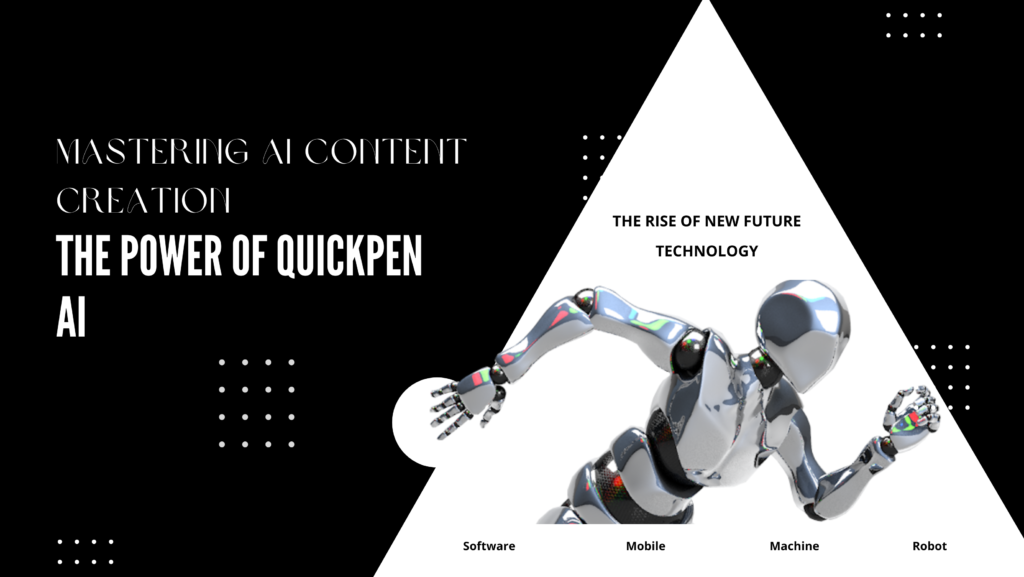Are you interested in pursuing a career as an AI developer, but don’t have a degree in the field? Don’t worry, you’re not alone! With the increasing demand for AI engineers, there are now job opportunities for non-degree AI developers. In this article, we will explore tips and strategies to help you become a self-taught AI developer, without the need for a formal degree.
Key Takeaways:
- Becoming an AI developer without a degree is possible with the right skills and practical experience.
- Obtaining a secondary school diploma is the first step towards becoming an AI engineer.
- Completing a bachelor’s or master’s degree in a related field can further enhance your qualifications.
- Earning certifications and acquiring practical experience through projects and hackathons is important.
- Developing technical skills in programming, statistics, and big data technologies is necessary for success.
What Is Artificial Intelligence?
Artificial intelligence (AI) refers to the ability of computer systems to mimic human behavior. It involves machines learning from past data and actions to make corrections, perform human-like tasks, and draw business insights. AI engineers use machine learning algorithms and deep learning neural networks to build AI models that can replicate human functions.
AI models are created using machine learning algorithms and deep learning neural networks. These models are capable of performing tasks such as speech recognition, image processing, and business process management. By analyzing large amounts of data and patterns, AI models can make predictions, automate processes, and assist in decision-making.
Artificial intelligence has numerous applications across various industries. For example, in healthcare, AI can be used to diagnose diseases and recommend treatment plans. In finance, AI can help detect fraudulent transactions and analyze market trends. In transportation, AI can optimize routes and enhance safety. The possibilities for AI are vast, and its potential impact on society is extensive.
The Role of Machine Learning Algorithms and Deep Learning Neural Networks
Machine learning algorithms form the foundation of AI models. These algorithms allow machines to learn from data, identify patterns, and make predictions. Deep learning neural networks, on the other hand, are a specific type of machine learning algorithm that attempts to simulate the architecture of the human brain. Deep learning neural networks are particularly effective in processing complex data such as images, audio, and natural language.
| Machine Learning Algorithms | Deep Learning Neural Networks |
|---|---|
| Decision Trees | Convolutional Neural Networks (CNNs) |
| Random Forests | Recurrent Neural Networks (RNNs) |
| Support Vector Machines (SVM) | Generative Adversarial Networks (GANs) |
“Artificial intelligence will reach human levels by around 2029.” – Ray Kurzweil, Futurist and Inventor
What Does an AI Engineer Do?
An AI engineer plays a crucial role in building AI models using machine learning algorithms and deep learning neural networks. They are responsible for developing and maintaining AI systems that can draw valuable business insights. AI engineers have a strong understanding of programming, software engineering, and data science, enabling them to process and analyze data effectively.
One of the main tasks of an AI engineer is to build AI applications such as contextual advertising, visual identification, and language translation. These applications utilize machine learning algorithms and deep learning neural networks to perform tasks that mimic human behavior. By leveraging these technologies, AI engineers can create intelligent systems that can make accurate predictions, recognize patterns, and automate processes.
“AI engineers have the opportunity to make a significant impact on the entire organization by using their expertise in AI models and algorithms. Their work can drive business decisions and help organizations optimize their operations.”
Additionally, AI engineers are responsible for continuously improving AI models and staying up to date with the latest advancements in the field. They may need to fine-tune algorithms, explore new techniques, and experiment with different data sets to enhance the performance of AI systems. This requires a combination of technical skills, creativity, and problem-solving abilities.
The Role of an AI Engineer:
- Building AI models using machine learning algorithms and deep learning neural networks
- Developing AI applications for tasks such as contextual advertising, visual identification, and language translation
- Processing and analyzing data to extract valuable business insights
- Continuously improving AI models and staying up to date with advancements in the field
Table: AI Engineer Skills
| Technical Skills | People Skills |
|---|---|
| Programming | Communication |
| Software Engineering | Problem-solving |
| Data Science | Domain Expertise |
| Machine Learning Algorithms | Time Management |
| Deep Learning Neural Networks | Teamwork |
Overall, AI engineers play a crucial role in leveraging AI technologies to drive business success. By building AI models, developing applications, and analyzing data, they contribute to the development of intelligent systems that can transform industries and improve user experiences.

How to Become an Artificial Intelligence Engineer?
To become an artificial intelligence engineer, there are several steps you can take to build the necessary skills and qualifications. The journey begins with obtaining a secondary school diploma, preferably with a focus on a scientific discipline. This foundation will provide you with a solid understanding of fundamental principles and concepts.
After completing your secondary education, you have the option to pursue a bachelor’s degree in a relevant field such as computer science, data science, or engineering. A bachelor’s degree will provide you with a deeper knowledge of artificial intelligence and its applications, as well as the necessary technical skills required in the industry.
For those seeking additional expertise and specialization, pursuing a master’s degree in artificial intelligence can be advantageous. A master’s degree program will provide you with a comprehensive understanding of advanced AI concepts, algorithms, and techniques.
In addition to formal education, acquiring practical experience is essential for becoming an AI engineer. Engaging in projects, internships, or hackathons can help you apply your knowledge and skills in real-world scenarios. This hands-on experience will further enhance your technical abilities and showcase your capabilities to potential employers.
While technical skills are crucial for success in the field, don’t underestimate the importance of people skills. Effective communication, problem-solving, domain expertise, time management, and teamwork are all valuable attributes that can contribute to your success as an AI engineer. Developing these skills alongside your technical abilities will make you a well-rounded professional in the field of artificial intelligence.
Table: Steps to Become an Artificial Intelligence Engineer
| Step | Description |
|---|---|
| Step 1 | Obtain a secondary school diploma in a scientific discipline |
| Step 2 | Complete a bachelor’s degree in a relevant field (computer science, data science, engineering) |
| Step 3 | Pursue a master’s degree in artificial intelligence for advanced knowledge and specialization |
| Step 4 | Acquire practical experience through projects, internships, and hackathons |
| Step 5 | Develop people skills such as communication, problem-solving, and teamwork |
Artificial Intelligence Qualification/Education
When it comes to pursuing a career in artificial intelligence engineering, having the right qualifications and education can play a crucial role in your professional development. While there are job opportunities for AI developers without degrees, a bachelor’s degree in a relevant subject is typically the minimum qualification in this field. Completing a master’s degree in artificial intelligence can provide a comprehensive understanding of the field and specialized technical abilities.
To excel in the field of artificial intelligence, having credentials in data science, deep learning, and machine learning can also be beneficial. These certifications demonstrate your expertise in these specific areas, making you more desirable to potential employers. Additionally, these qualifications can provide you with a deeper understanding of the theories and concepts behind AI, allowing you to apply them effectively in your work.
Here is a table summarizing the different qualification options for a career in artificial intelligence engineering:
| Qualification/Education | Description |
|---|---|
| Bachelor’s Degree | A minimum requirement for most AI engineering roles. A degree in a relevant subject such as information technology, computer engineering, statistics, or data science. |
| Master’s Degree | Provides a comprehensive understanding of artificial intelligence and specialized technical abilities. A deeper dive into theories and concepts. |
| Data Science Certification | A credential that demonstrates expertise in data science, a vital aspect of AI engineering. |
| Deep Learning Certification | Showcases proficiency in deep learning, a subset of machine learning that focuses on neural networks with multiple layers. |
| Machine Learning Certification | Validates skills and knowledge in machine learning, an essential component of AI engineering. |
With the right qualifications and education, you can enhance your knowledge and skills in artificial intelligence engineering, making you a valuable asset in the field.
Responsibilities of an AI Engineer
An AI engineer plays a crucial role in the development and implementation of AI technologies. Their responsibilities cover various aspects of AI development, including:
- Developing, testing, and deploying AI models: An AI engineer is responsible for building and refining AI models, ensuring their accuracy and performance.
- Converting machine learning models into application program interfaces (APIs): AI engineers transform AI models into APIs that can be easily integrated with other applications.
- Statistical analysis: They analyze and interpret data to drive insights and improvements in AI models and algorithms.
- AI adoption: AI engineers educate stakeholders on the benefits and potential applications of AI technologies, facilitating their adoption and integration into business processes.
- Collaboration and teamwork: AI engineers work closely with cross-functional teams, including data scientists, software developers, and business analysts, to develop effective AI solutions.
With their diverse skill set and expertise, AI engineers contribute to the advancement and implementation of AI technologies across various industries.

Skills Required to Become an AI Developer Engineer
To become a successful AI engineer, you need to possess a combination of technical and people skills. Let’s take a closer look at the key skills required:
- Technical Skills: A strong foundation in programming is essential, with proficiency in languages such as Python, R, Java, and C++. In addition, understanding concepts like linear algebra, probability, and statistics is crucial for applying machine learning algorithms effectively. Familiarity with big data technologies like Spark and knowledge of algorithms and frameworks will also be beneficial.
- People Skills: Effective communication is vital for collaborating with team members and stakeholders, as you’ll need to clearly articulate complex ideas and present the results of your AI models. Problem-solving skills are essential for identifying and resolving challenges along the way. Domain expertise will help you understand the specific requirements of the industry you’re working in. Time management is crucial for meeting deadlines and managing multiple projects, while teamwork ensures smooth collaboration and sharing of knowledge.
By developing these technical and people skills, you’ll be well-equipped to tackle the challenges and opportunities that come with being an AI engineer.
Comparison of Technical Skills
| Technical Skills | AI Engineer | Data Scientist | Software Engineer |
|---|---|---|---|
| Programming Skills | High | High | High |
| Linear Algebra | High | Medium | Low |
| Probability | High | Medium | Low |
| Statistics | High | High | Medium |
| Big Data Technologies | High | Low | Low |
| Algorithms | High | Medium | High |
| Frameworks | High | Low | High |
As shown in the table, AI engineers require a high level of expertise in programming, linear algebra, probability, statistics, big data technologies, algorithms, and frameworks. While data scientists also possess strong skills in statistics and algorithms, their expertise in programming and big data technologies may be lower. On the other hand, software engineers excel in programming and frameworks but have comparatively lower expertise in linear algebra, probability, and statistics. These distinctions highlight the unique skill set needed for AI engineers to thrive in their field.
What is AI Engineering?
AI engineering is the field that focuses on developing the tools, systems, and processes that enable artificial intelligence to be applied in the real world. AI engineers utilize machine learning techniques to create applications and systems that can help organizations increase efficiency, cut costs, and make better business decisions. They work with algorithms and data analysis to create AI applications that can mimic human functions.
AI engineering involves a variety of tasks and responsibilities. AI engineers design and build AI models using machine learning algorithms and techniques. They analyze data, identify patterns, and develop models that can make predictions or perform specific tasks. They also work on improving the accuracy and performance of existing AI models by fine-tuning algorithms and optimizing parameters.
Furthermore, AI engineers collaborate with other professionals such as data scientists, software engineers, and domain experts to develop and deploy AI applications. They ensure that the applications are scalable, reliable, and secure. They also play a crucial role in maintaining and updating the AI systems to keep up with the evolving needs of the organization.
| Key Responsibilities of an AI Engineer |
|---|
| Designing and building AI models using machine learning algorithms and techniques |
| Analyzing data and identifying patterns to develop predictive models |
| Tuning algorithms and optimizing parameters to improve model accuracy and performance |
| Collaborating with data scientists, software engineers, and domain experts |
| Developing scalable, reliable, and secure AI applications |
AI Applications in Various Industries
AI engineering has applications in various industries and fields. In healthcare, AI is used for medical image analysis, diagnosis assistance, and drug discovery. In the entertainment industry, AI is used for recommendation systems, content creation, and virtual reality experiences. In transportation, AI is used for autonomous vehicles, traffic management, and logistics optimization.
AI engineers are at the forefront of developing these innovative applications and pushing the boundaries of what is possible with artificial intelligence. They play a crucial role in driving digital transformation and helping organizations leverage the power of AI to gain a competitive edge.
Is AI for me?
Artificial Intelligence (AI) is no longer confined to the realm of highly technical experts. It has become more accessible to individuals who may not have a deep understanding of the technical aspects of AI engineering. Whether you come from a non-technical background or are simply interested in leveraging the potential of AI in various industries, there are opportunities for you to explore and benefit from AI.
AI engineering offers a wide range of applications in fields such as healthcare, entertainment, transportation, and more. It has the potential to improve business decisions, drive innovation, and enhance the overall efficiency of organizations. By embracing AI, you can contribute to the development and implementation of AI models and technologies that have a positive impact on society.
While a solid understanding of the technical side of AI can certainly be an advantage, it is not always a prerequisite for working with AI. As AI continues to evolve and become more user-friendly, there are tools and platforms available that make it easier to work with AI applications without extensive technical knowledge. This opens up opportunities for individuals from diverse backgrounds to participate in the AI revolution.
AI Applications and Opportunities
AI has already made its mark in various industries, with applications ranging from automated customer service chatbots to personalized recommendation systems. Here are just a few examples of how AI is being used:
- Healthcare: AI is revolutionizing the healthcare industry by enabling early detection of diseases, assisting in medical diagnostics, and improving patient care through predictive analytics.
- Entertainment: AI is being used in the entertainment industry to enhance virtual reality experiences, enable realistic computer-generated characters, and customize content recommendations for users.
- Transportation: AI is driving innovation in transportation with the development of self-driving cars, optimizing traffic flow, and predicting maintenance needs for vehicles.
These are just a few examples of the many applications of AI. As AI technology continues to advance, there will be even more opportunities to apply AI in various industries and fields.
Annual Salary and Job Outlook
The field of AI engineering offers promising job growth and competitive salaries. As businesses continue to invest in AI technologies, the demand for skilled AI engineers is on the rise. According to Glassdoor, the average salary for an AI engineer in the United States is approximately $108,127 per year.
AI engineers typically find employment with tech companies such as Google, IBM, and Meta, among others. These companies are at the forefront of AI research and development, making them highly sought-after by AI professionals. However, AI engineers are also in demand across various industries, including healthcare, finance, and manufacturing, as organizations recognize the potential of AI to drive innovation and improve business decisions.
| AI Engineer Salary | Job Growth | Tech Companies | Job Demand |
|---|---|---|---|
| $108,127 | 23% (2022-2032) | Google, IBM, Meta | High |
In addition to competitive salaries, the job outlook for AI engineers is exceptionally positive. The field is projected to experience a job growth of 23% between 2022 and 2032, much faster than the average for all occupations. This growth is driven by the increasing adoption of AI technologies across industries and the need for skilled professionals to develop and maintain these systems.
As AI becomes more prevalent in society, the demand for AI engineers is expected to continue rising. This creates excellent opportunities for individuals interested in pursuing a career in AI engineering. By acquiring the necessary technical skills and staying updated on the latest AI trends and technologies, aspiring AI engineers can position themselves for success in this exciting and rapidly evolving field.
How to Become an AI Engineer
Becoming an AI engineer requires a combination of technical skills, practical experience, networking, and job application. Here are some key steps to help you embark on your journey to becoming an AI engineer:
Develop Technical Skills: AI engineers need a strong foundation in programming languages such as Python, R, Java, and C++. Additionally, knowledge of linear algebra, probability, and statistics is essential. Familiarity with big data technologies like Spark and expertise in machine learning algorithms and frameworks are also important.
Gain Practical Skills: Hands-on experience is crucial for success as an AI engineer. Engage in projects, competitions, and collaborations to develop practical skills and showcase your abilities. Building AI models, working with real-world data sets, and solving complex problems will help you build a solid portfolio.
Network with Professionals: Networking is a vital aspect of any career, including AI engineering. Connect with professionals in the AI industry through online platforms, industry events, and AI communities. Engaging with experts and learning from their experiences can open doors to new opportunities and collaborations.
Apply for AI Engineering Jobs: Once you have developed the necessary skills and gained practical experience, start applying for AI engineering positions. Tailor your resume and cover letter to highlight your technical expertise and project experience. Be prepared for technical interviews and coding assessments that assess your problem-solving abilities.
Gain Work Experience: Landing your first job as an AI engineer is an important milestone. Gain work experience to further enhance your skills and knowledge. Learn from experienced professionals and contribute to real-world AI projects. This will strengthen your expertise and make you more marketable in the field.
By following these steps, you can increase your chances of becoming an AI engineer. Remember to continuously update your skills, stay updated with the latest advancements in the field, and never stop learning.
Conclusion
In conclusion, the path to becoming an AI developer without a degree is not only feasible but also filled with promising job opportunities. While a degree can be beneficial, practical experience and skills are the key factors that employers value in the industry.
By building a strong foundation in AI, acquiring practical skills through projects and collaborations, and continuously expanding your knowledge, you can demonstrate your abilities as an AI developer without a degree.
Networking with professionals in the field and actively engaging with the AI community can provide valuable insights, open doors to career growth, and help you stay up-to-date with the latest advancements in the field.
Remember, landing a job in AI is not solely dependent on formal education but rather a combination of skills, practical experience, and a genuine passion for the field. So, don’t hesitate to embark on this exciting journey and explore the world of AI development!
FAQ
Can I become an AI developer without a degree?
Yes, job opportunities exist for AI developers without degrees. Skills and practical experience are key factors in the industry.
What is artificial intelligence?
Artificial intelligence is the ability of computer systems to mimic human behavior. It involves machines learning from past data and actions to make corrections, perform human-like tasks, and draw business insights.
What does an AI engineer do?
An AI engineer builds AI models using machine learning algorithms and deep learning neural networks. They draw business insights and make business decisions that affect the entire organization.
How can I become an artificial intelligence engineer?
To become an artificial intelligence engineer, you can start by obtaining a secondary school diploma, complete a bachelor’s degree or pursue a master’s degree, earn certifications, acquire practical experience, and develop the necessary technical and people skills.
What qualifications are required for artificial intelligence?
In the field of artificial intelligence engineering, a bachelor’s degree in a relevant subject such as information technology, computer engineering, statistics, or data science is typically the minimum qualification. Pursuing a master’s degree in artificial intelligence can provide a comprehensive understanding of the field and specialized technical abilities.
What are the responsibilities of an AI engineer?
An AI engineer is responsible for tasks such as developing, testing, and deploying AI models. They convert machine learning models into application program interfaces (APIs) for other applications to use. They also automate infrastructure, perform statistical analysis, and set up and manage AI development and product infrastructure.
What skills are required to become an AI engineer?
Some of the technical skills required to become an AI engineer include programming skills in languages such as Python, R, Java, and C++, knowledge of linear algebra, probability, and statistics, understanding of big data technologies like Spark, and familiarity with machine learning algorithms and frameworks. In addition to technical skills, people skills such as communication, problem-solving, domain expertise, time management, and teamwork are also important.
What is AI engineering?
AI engineering focuses on developing the tools, systems, and processes that enable artificial intelligence to be applied in the real world. AI engineers use machine learning techniques to develop applications and systems that can help organizations increase efficiency, cut costs, and make better business decisions.
Is AI for me?
AI can be accessible for those who do not need to understand the technical side of AI. AI engineering offers opportunities to apply AI in various industries and fields such as healthcare, entertainment, and transportation. AI can be for anyone interested in leveraging its potential to improve business decisions and drive innovation.
What is the annual salary and job outlook for AI engineers?
The average salary for an AI engineer in the United States is around $108,127, according to Glassdoor. The field is expected to experience a job growth of 23 percent between 2022 and 2032, much faster than the average for all occupations. AI engineers typically work for tech companies like Google, IBM, and Meta, among others, and there is a growing demand for AI engineers in various industries.
How can I become an AI engineer?
To become an AI engineer, you need to build the necessary technical skills such as programming languages, probability, statistics, big data technologies, and algorithms. Practical skills and hands-on experience can be gained through projects, competitions, and collaborations. Networking and engaging with professionals in the AI industry can also provide opportunities for career growth. Applying for AI engineering jobs and gaining work experience are crucial steps to becoming an AI engineer.
Source Links







